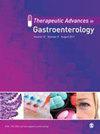Enhancing self-management of patients with inflammatory bowel disease: the role of autonomy support in health goal pursuit.
IF 3.4
3区 医学
引用次数: 0
Abstract
Background Inflammatory bowel disease (IBD) is a chronic condition that significantly affects patients' physical, mental, and social health, as well as their overall quality of life. Effective management of the disease demands self-management skills, enabling patients to navigate the daily challenges associated with IBD, such as unpredictable flare-ups, frequent hospitalization, severe symptoms, pain, and physical changes. Objectives This study examines the motivational aspects of self-management for patients with IBD and focuses on the role of autonomy and directive support from healthcare professionals in enhancing their self-concordance and self-efficacy. Design From November 2022 to February 2023, a cross-sectional questionnaire study was conducted at the IBD Center of Internal Medicine Clinic in Szeged, Hungary. Methods A total of 374 adult patients with IBD completed the paper-pencil questionnaire, of whom 241 patients (64.4%) had Crohn's disease, and 133 patients (35.6%) had ulcerative colitis. Results Based on the findings of the path analysis (χ2 (8) = 18.914, p = 0.01, comparative fit index = 0.935, TLI = 0.837, root mean squared error of approximation = 0.06), autonomy support positively predicted self-concordance (β = 0.48) and self-efficacy (β = 0.02), particularly during disease relapse. In addition, self-concordance and self-efficacy predicted more positive (βs = 0.28 and 0.35) and fewer negative emotional experiences (βs = -0.09 and -0.20). The model's associations varied between the relapse and remission groups, indicating distinct impacts on different states of the disease. Conclusion Overall, autonomy support from healthcare professionals has been shown to enhance self-management in patients with IBD, particularly during disease relapse. Meanwhile, self-concordance and self-efficacy act as positive internal factors, thus reducing negative emotional experiences, especially during remission. In sum, this study underscores the need for further exploration of the motivational aspects of self-management and provides insights into developing interventions that promote the health behaviors of patients with IBD.加强炎症性肠病患者的自我管理:自主支持在追求健康目标中的作用。
背景炎症性肠病(IBD)是一种慢性疾病,严重影响患者的身体、精神和社交健康以及整体生活质量。有效的疾病管理要求患者具备自我管理技能,使其能够应对与 IBD 相关的日常挑战,如不可预测的疾病发作、频繁住院、严重症状、疼痛和身体变化。设计2022 年 11 月至 2023 年 2 月,匈牙利塞格德内科诊所 IBD 中心开展了一项横断面问卷调查研究。方法共有 374 名成年 IBD 患者填写了纸笔问卷,其中 241 名患者(64.4%)患有克罗恩病,133 名患者(35.6%)患有溃疡性结肠炎。914,P = 0.01,比较拟合指数 = 0.935,TLI = 0.837,均方根近似误差 = 0.06),自主支持对自我和谐(β = 0.48)和自我效能(β = 0.02)有正向预测作用,尤其是在疾病复发时。此外,自我一致性和自我效能预测了更多的积极(βs = 0.28 和 0.35)和更少的消极情绪体验(βs = -0.09 和 -0.20)。该模型在复发组和缓解组之间的相关性各不相同,表明对疾病的不同状态有不同的影响。结论总体而言,来自医护人员的自主支持已被证明能加强 IBD 患者的自我管理,尤其是在疾病复发期间。同时,自我一致性和自我效能感也是积极的内在因素,从而减少了负面情绪体验,尤其是在病情缓解期间。总之,本研究强调了进一步探索自我管理动机方面的必要性,并为制定促进 IBD 患者健康行为的干预措施提供了启示。
本文章由计算机程序翻译,如有差异,请以英文原文为准。
求助全文
约1分钟内获得全文
求助全文
来源期刊

Therapeutic Advances in Gastroenterology
Medicine-Gastroenterology
自引率
2.40%
发文量
103
期刊介绍:
Therapeutic Advances in Gastroenterology is an open access journal which delivers the highest quality peer-reviewed original research articles, reviews, and scholarly comment on pioneering efforts and innovative studies in the medical treatment of gastrointestinal and hepatic disorders. The journal has a strong clinical and pharmacological focus and is aimed at an international audience of clinicians and researchers in gastroenterology and related disciplines, providing an online forum for rapid dissemination of recent research and perspectives in this area.
The editors welcome original research articles across all areas of gastroenterology and hepatology.
The journal publishes original research articles and review articles primarily. Original research manuscripts may include laboratory, animal or human/clinical studies – all phases. Letters to the Editor and Case Reports will also be considered.
 求助内容:
求助内容: 应助结果提醒方式:
应助结果提醒方式:


